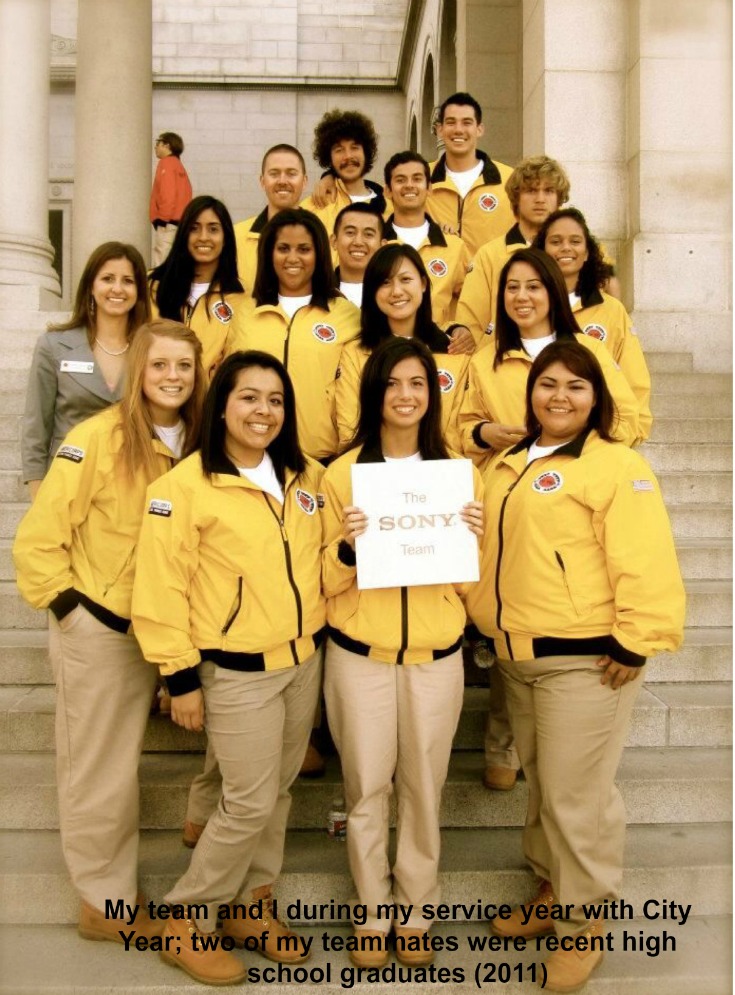Since I began working in the college counseling world, I find myself spending more time planning for college than discussing how ready a student may actually be for college or the alternative pathways into college. I often share with my students the reality of my own freshman year and my lack of readiness. After excelling in high school, I ended up in academic probation by the end of my first year. I wish I could blame it on the rigor or my lack of sleep for staying up night after night studying. But the truth is that it was because I was irresponsible and not prepared for so much independence. While I was able to surpass those academic challenges, I know way too many classmates who would have benefitted from a gap year before going into college.
According to TIME magazine, “many educators tout taking a gap year, saying that kids who step off the academic treadmill after high school to work, travel, volunteer or explore other interests are more mature when they arrive at college and more engaged in their education going forward.” Yet despite the increased popularity in students taking gap years, there are those who criticize this trend, commenting that this is a privilege only certain students have given the financial barriers that many students face.
When the White House first announced Malia Obama’s decision to take a gap year before going on to start her college career at Harvard, the criticism did not wait. Regardless of the difference of opinions, the media did not do its part to share more than the criticism. Gap years come in different forms. Students can use them to take time off to go on an adventure and take some well deserved time off from over twelve years of schooling. They can use the time off to work and save money for college; they can use the year off to explore career options; and they can use the take time off to find their passions and actually save money by not wasting time in college trying to figure out what’s next. Gap years really do come in many forms and can offer many opportunities. One opportunity is often left unmentioned: a second chance.
Unlike deferring admissions as a senior, students can take a gap year and utilize that year to apply or reapply to college. Life happens, and sometimes students are not able to apply to college. By planning a gap year, a student can utilize the summer after high school graduation and a lot of the fall to complete the college admission process. Petersons experts, a private company specialized in higher education, have shared that gap years “can work well for a student who is unready to apply to colleges during senior year of high school, and/or wants to show academic and possibly activity progress (sports are big here) from a completed senior year prior to sending in applications.” In addition, many university administrators have noted that gap years can come in a variety of forms and some of them can even come at no cost. One of those is AmeriCorps’ City Year, which places corps members in high need communities to help bridge the academic gaps. I know first hand the benefits of City Year because I joined the corps during my own gap year after college. This year was perhaps the best and most rewarding year of my life as it helped me find my passion but also helped me grow as a person. While I enjoyed my year of service, I saw how much the recent high school graduates in my team grew over the span of our year together. I envied them because I saw them mature and gain experience in a meaningful way. One of my own teammates, used his year of service to strengthen his application and ended up getting accepted to the college of his dreams with a scholarship (AmeriCorps provides corps members an Education Award of $5,775 for their year of service).
I have heard too many people discuss gap years in such a narrow way. I realized that this not a topic that is often talked about when discussing alternative pathways to college. The gap year is not the best option for everyone, but knowing about it CAN allow students and their families to remember that there are many opportunities available. Explore them.
And be happy for Malia Obama. This gap year can really make a difference for her future.
Alma Renteria
Latest posts by Alma Renteria (see all)
- Rincón Universitario: Cómo Escribir una Narrativa Auténtica para Solicitudes de Universidades, Parte 3 - October 17, 2019
- College Corner: How To Write An Authentic Narrative for College Applications, Part 3 - October 15, 2019
- Rincón Universitario: Cómo Escribir Una Narrativa Auténtica para Solicitudes Universitarias, Parte 2 - October 1, 2019
- College Corner: How To Write An Authentic Narrative for College Applications, Part 2 - September 26, 2019
- College Corner: Cómo Escribir un Relato Auténtico de Solicitudes para la Universidad, Parte 1 - September 4, 2019

